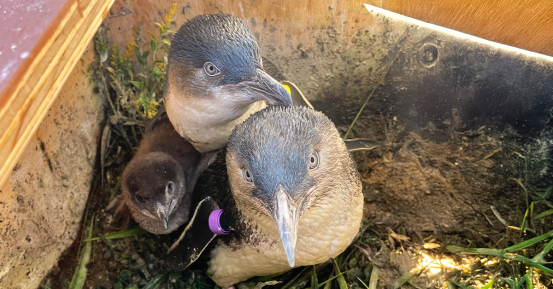By:
- Jade Griffin
Published Date
By:
- Jade Griffin
Share This:
Putting a Dent in Food Waste
UC San Diego undergraduates receive Lemelson-MIT Prize for novel technology
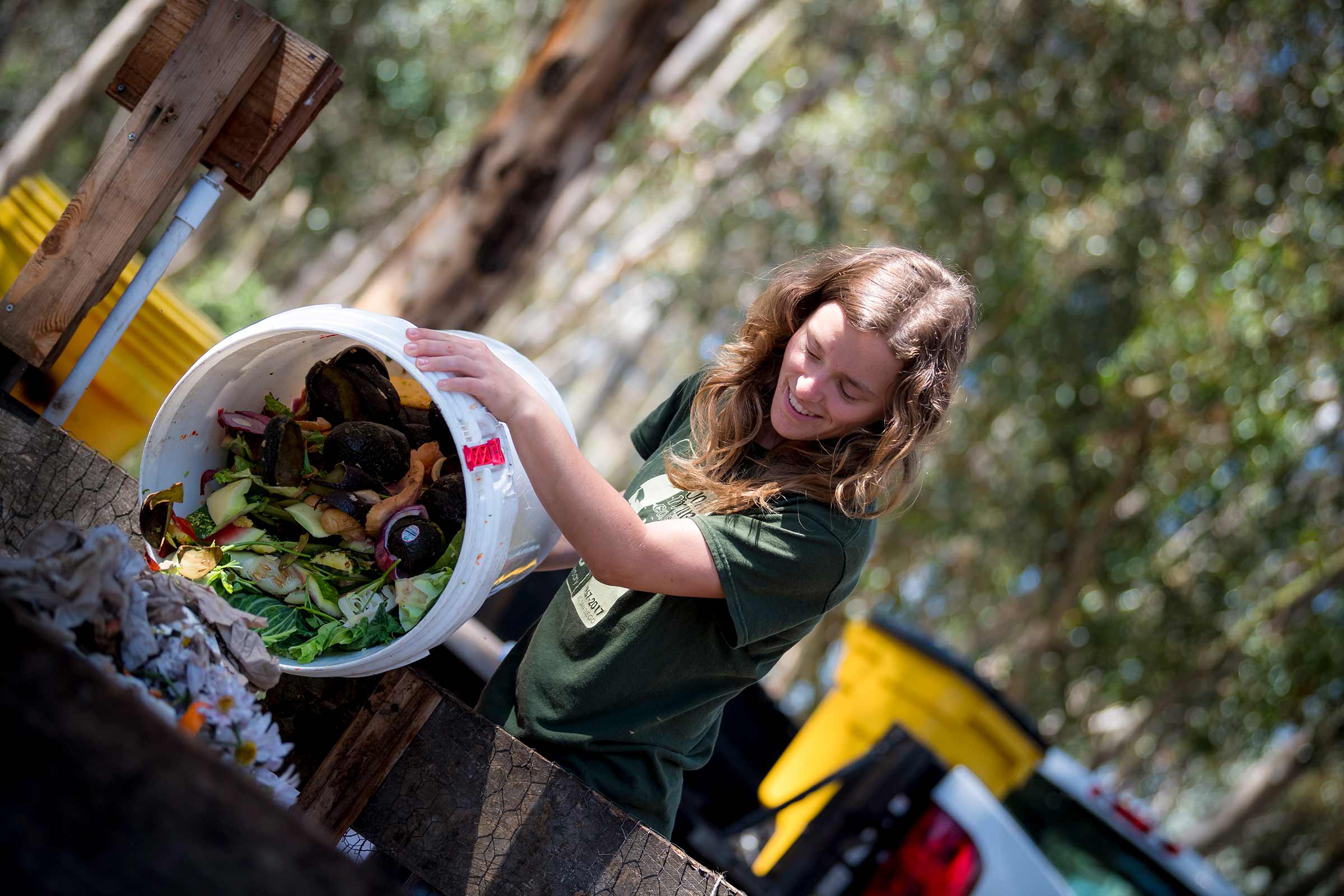
Enid Partika, one of two students to receive the Lemelson-MIT Prize for their BioEnergy Project, works to turn food waste into fertilizer and biogas. Photos by Erik Jepsen/UC San Diego Publications
When UC San Diego undergraduate student Enid Partika learned that more than 40 percent of U.S. food waste is thrown into landfills where it releases significant amounts of greenhouse gases, she decided something needed to be done.
Her plan came together after touring the student-run Roger’s Community Garden on campus. She became a principal member of the garden and, with other students including undergraduate Will Tanaka, began to build an anaerobic digestion and biogas production system they named the BioEnergy Project. The goal was to design a system that would turn food waste destined for landfills into usable products—including fertilizer for organic produce and biogas for electricity.
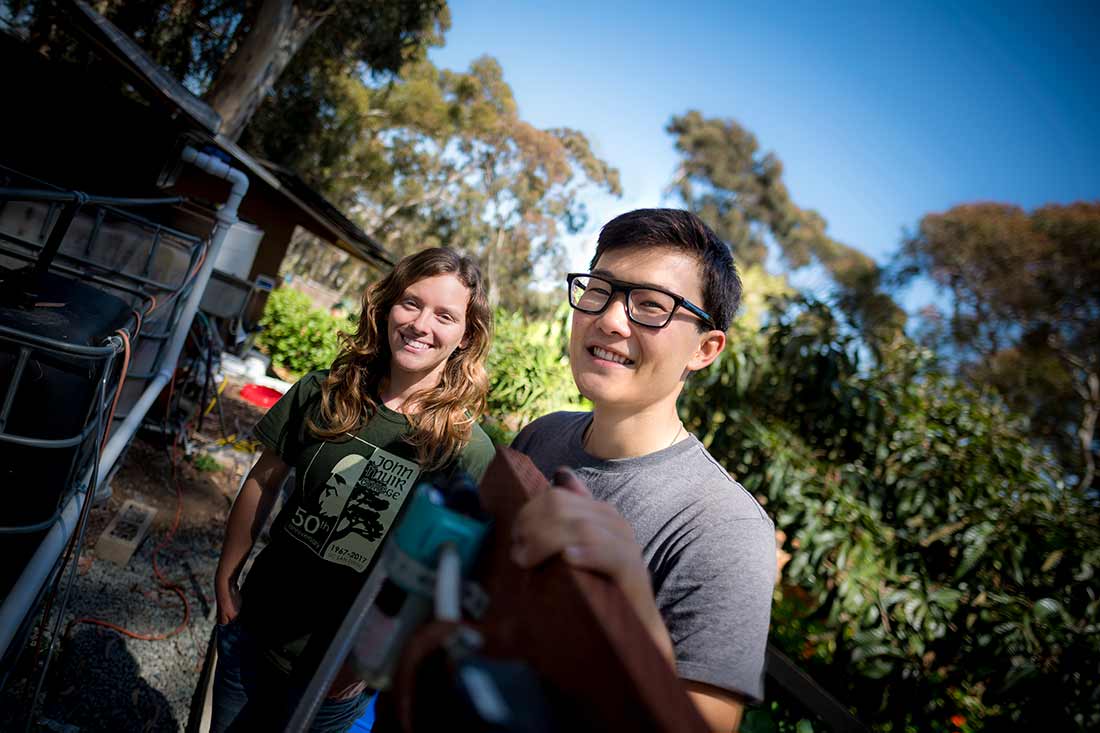
Lemelson-MIT Prize student recipients Enid Partika and Will Tanaka in Roger’s Community Garden.
According to the Food and Agriculture Organization of the United Nations, if food waste was a country, it would be the third largest emitter of greenhouse gases in the world. “I saw anaerobic digestion as the perfect solution to this problem by turning waste into marketable returns such as produce and biogas,” said Partika, a fourth year environmental chemistry major.
She continued: “We went through the design process by researching relevant literature and then used what we had learned to create a design that would build upon what had already been accomplished in the field of anaerobic digestion by integrating hydroponics, solar power and biogas production into a single system.”
Partika and Tanaka were recognized recently with a prestigious 2019 Lemelson-MIT Student Prize for their work on the BioEnergy Project. Administered by MIT’s School of Engineering and funded by the Lemelson Foundation, the national award celebrates outstanding inventors and seeks to inspire young people to pursue creative lives and careers through invention.
Building the Program
The UC San Diego team began building the system in 2017, testing it for fertilizer and biogas production efficiency. They also established a student-run collection program to gather food waste from campus dining halls, restaurants and grocery stores nearby.
“The ultimate goal of this project is to take campus food waste and turn it into fertilizer and renewable energy while simultaneously tackling our food waste and energy problems,” said Tanaka, a second year nanotechnology major.
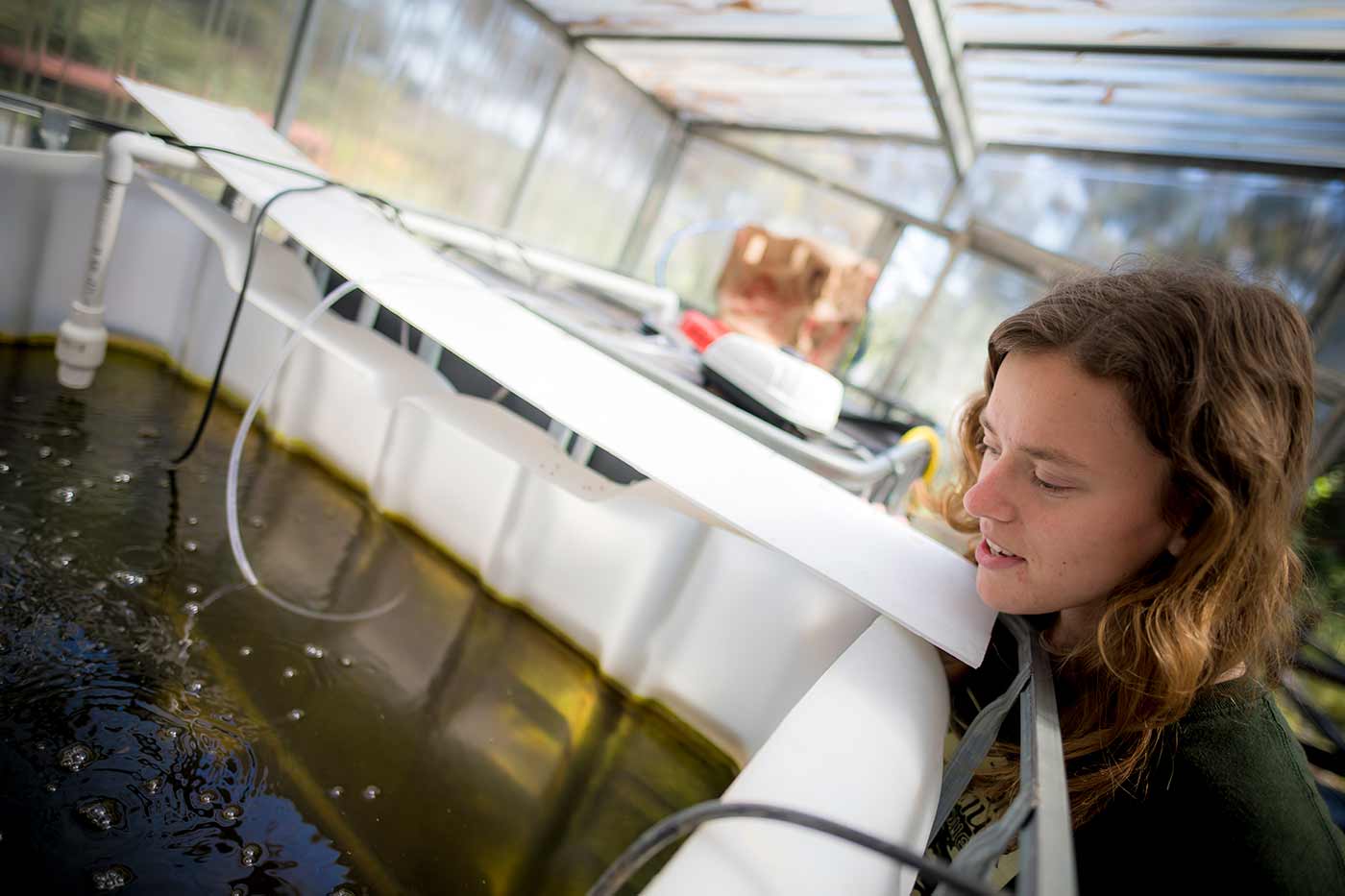
The students incorporated hydroponics into their system.
To get the program off the ground, Tanaka and other students dedicated 10 to 15 hours each week collecting food waste from Price Center for the project. The Campus Sustainability Office recently added a paid student position to help collect food waste from campus dining halls and restaurants to support the initiative.
Fueled with collected food waste, the technology creates fertilizer, which helps grow produce—much of which is donated to the campus Food Pantry to help students experiencing food insecurity. The system also generates biogas that can be used by the university. “The campus is looking for sources of renewable biogas—which our technology provides—to help reach its carbon neutrality goals,” Tanaka added.
In just one year, the team repurposed more than 42,000 pounds of food waste to create biogas, soil and organic produce, which equates to almost 4 megatons of carbon dioxide equivalent. The students have also worked to leverage the project into an educational platform for fellow students, which incorporates hands-on experiential learning with urban sustainable agriculture.
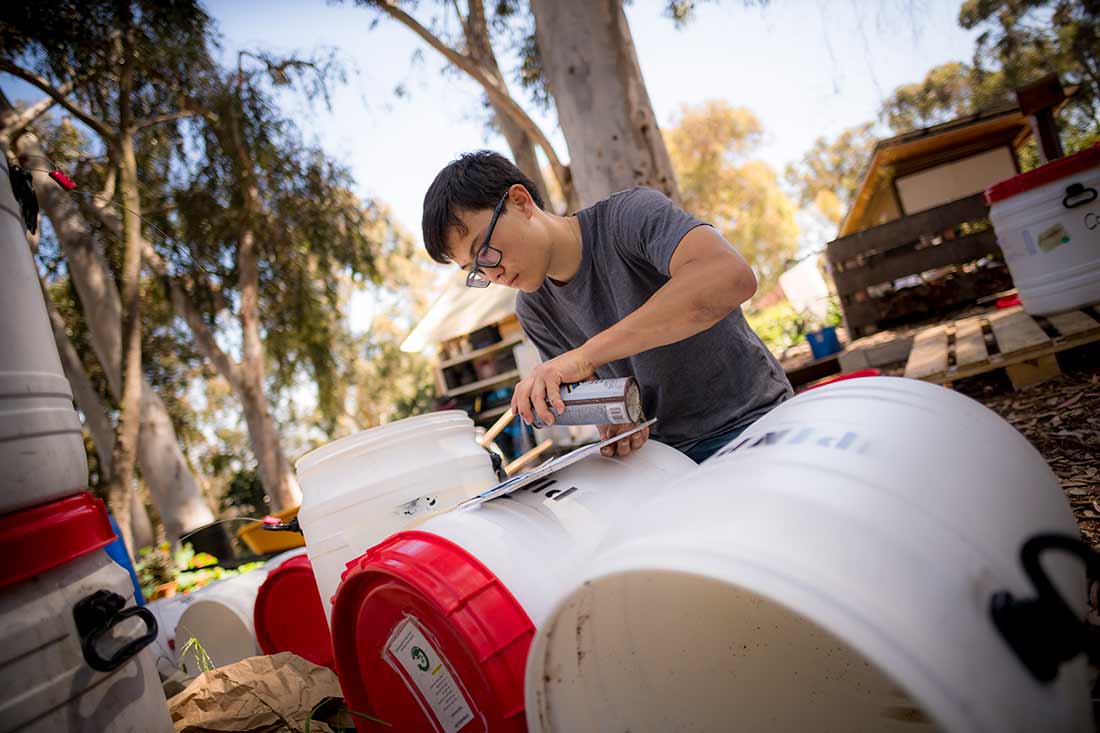
The students dedicate 10-15 hours a week on the project, which they hope can be used at other universities and urban areas.
“We are already on our way to implementing more of our systems around the UC San Diego campus to help the university reach its zero waste goal by 2020,” said Partika. “I envision that as we gain an increasing amount of traction, we will be able to begin to implement compact, versatile systems tailored to other universities and urban settings.”
Upon graduation, Partika will continue her research and product development of the anaerobic digestion system through the Analytical and Environmental Chemistry Master's Program at UC San Diego. Tanaka also plans to pursue a career as an entrepreneur focused on innovation that is both environmentally and economically sustainable.
The duo is already working to use the technology to benefit those in the San Diego community. According to Partika, “We will also be collaborating with the UC San Diego Bioregional Center for Sustainability Science, Planning, and Design to implement the BioEnergy Project system in communities throughout San Diego, especially those in food deserts where we could provide them with healthy organic produce.”
Share This:
Stay in the Know
Keep up with all the latest from UC San Diego. Subscribe to the newsletter today.
